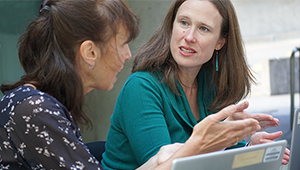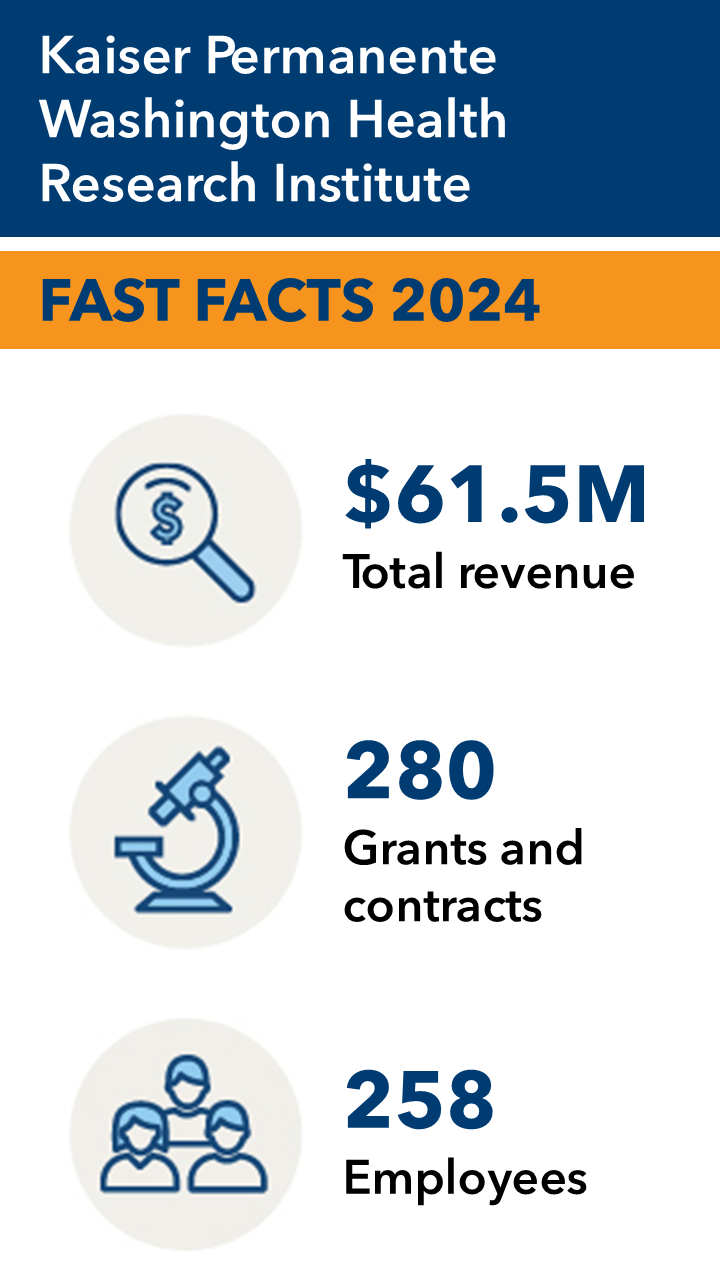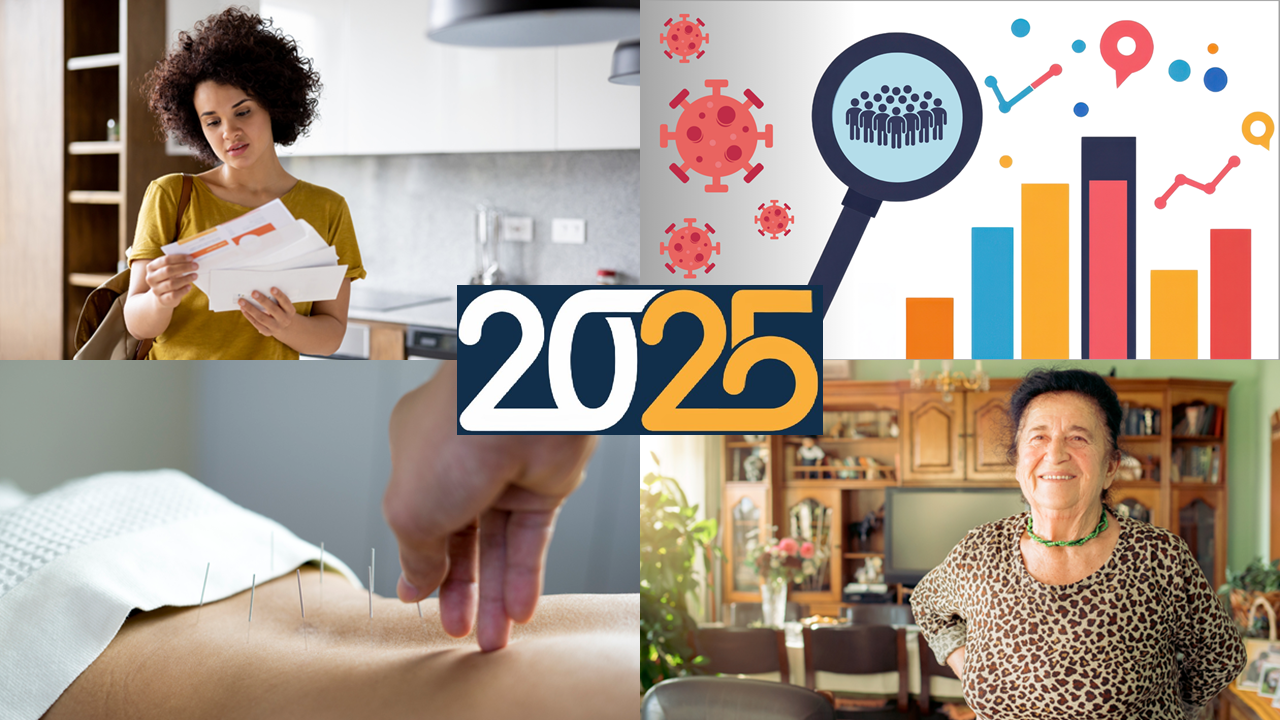Our Research
Science to serve one goal: Better health
Scientists at Kaiser Permanente Washington Health Research Institute (KPWHRI) have a rare advantage: We work within a system that provides both care and coverage. With a 360-degree view of people’s everyday health experience over time, we discover what works best to serve Kaiser Permanente's mission: better health.
We collaborate closely with Kaiser Permanente Washington's medical staff and other providers — gaining from their perspectives on practical approaches to health care’s toughest problems. Together, we create a learning health care system — a place where research strengthens practice and practice strengthen research.
Scientists

Working in the public interest
Our faculty work on interdisciplinary research teams, conducting about 300 studies at any given time. They partner with affiliate researchers and others from academic institutions and health systems and share findings in the public domain to serve the public good.
See our KPWHRI researcher directory.

Funding sources

A broad base of support
Most of our support comes from federal agencies, such as the National Institutes of Health. We also contract with biomedical companies and receive grants from private foundations. About 5 percent of our budget comes from Kaiser Permanente Washington.
See our list of funders.
Research

Remote programs effective for chronic pain, study finds
Telehealth and online cognitive behavioral therapy could expand treatment options for chronic pain in rural areas.
Recent publications
Tucher EL, Steele AL, Uratsu CS, Hamilton LK, Brown MC, Nugent JR, Jones DH, Gottlieb LM, Grant RW Addressing social needs to improve health in adults with multiple chronic conditions: A comparative effectiveness trial of two real-world social needs interventions 2025 Dec 24 doi: 10.1016/j.cct.2025.108210. Epub 2025-12-24. PubMed
Simon GE, Wellman R, Shortreed SM, Johnson E, Sterling SA, Coleman KJ, Ahmedani BK, Yaseen ZS, Mosholder AD Predicting and differentiating opioid and non-opioid drug poisonings using health records data 2025 Dec 22;182:209861. doi: 10.1016/j.josat.2025.209861. Epub 2025-12-22. PubMed
Mehta SJ, Shaw PA, Reitz C, Brophy C, Okorie E, Williams K, Segura A, Tao J, Snider CK, Wollack C, Friday S, Rendle KA, Klaiman T, Glanz K, Rhodes C, Asch DA Sequential choice vs colonoscopy outreach for colorectal cancer screening: Design and rationale of a pragmatic randomized clinical trial 2025 Dec 16;161:108188. doi: 10.1016/j.cct.2025.108188. Epub 2025-12-16. PubMed
Sampathkumar Y, Zakaria Z, O'Connell K, Bhimani J, Blinder VS, Burganowski R, Ergas IJ, Gallagher GB, Griggs JJ, Heon N, Kolevska T, Kotsurovskyy Y, Kroenke CH, Laurent CA, Liu R, Nakata KG, Persaud S, Roh JM, Tabatabai S, Valice E, Bandera EV, Aiello Bowles EJ, Kushi LH, Kantor ED Clinician- and Facility-Level Factors Associated With Receipt of Nonguideline Chemotherapy Regimens in Women With Stage I-IIIA Breast Cancer 2025 Dec 11 doi: 10.1200/OP-25-00086. Epub 2025-12-11. PubMed
Collaborate with us
KPWHRI welcomes partnerships with researchers outside of Kaiser Permanente as well as Kaiser Permanente clinicians and researchers. Learn more about collaborating with us.



